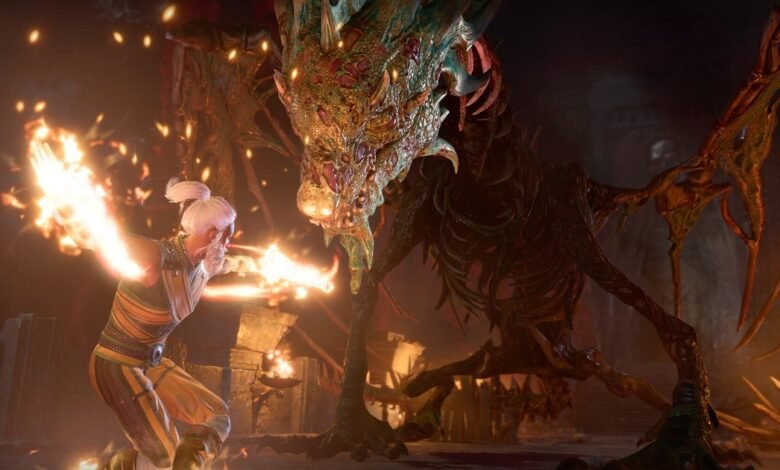Nearly Half of AAA Games Now Launch in Just 3 Months

▼ Summary
– 45% of AAA single-player games were released between mid-August and mid-November, with February and March accounting for another 23% of releases.
– Games released in Q2 achieved equal or higher engagement per title than those in the crowded September-November period, despite fewer releases.
– Publishers’ reliance on traditional release windows increases marketing costs and reduces visibility, potentially harming profitability.
– Players are increasingly selective, often buying only one or two major releases at full price and waiting for discounts for others.
– The 2025 release schedule may be disrupted as publishers adjust plans around GTA 6’s delay to 2026, risking cannibalization in a compressed window.
A significant shift is reshaping the video game industry, with nearly half of all major single-player game releases now concentrated within a narrow three-month period. Recent analysis reveals that 45% of premium AAA single-player titles have launched between mid-August and mid-November since 2021, creating intense competition during what was traditionally the holiday shopping season.
Market intelligence firm Newzoo examined player engagement data for 155 high-budget single-player games released across PlayStation, PC, and Xbox platforms between January 2021 and December 2024. The study defined AAA games as those priced above $60, including remastered editions of existing premium titles.
The research identified two primary release clusters that dominate the gaming calendar. The first occurs in February and March, accounting for 23% of analyzed releases. The second, and more dominant pattern, appears during the late summer through fall months, where 45% of major titles hit the market. Combined, these five months saw 68% of all premium single-player game launches.
![Image: Graph showing game release concentration throughout the year]
Interestingly, games released outside these crowded windows demonstrated stronger engagement metrics. The second quarter of the year featured only 22 game releases but achieved equal or greater player engagement per title compared to the September-November period. This suggests that avoiding the crowded release window might benefit both players and publishers.
The data reveals how individual blockbuster titles can dramatically influence monthly engagement statistics. In February, Hogwarts Legacy and Elden Ring together represented 55% of the approximately 2.5 million average players during their first three months. Similarly, Baldur’s Gate 3 accounted for half of August’s nearly three million player average. Meanwhile, July emerged as the weakest month for new title engagement, with combined player counts falling below one million across all analyzed games.
Industry analysts point to several factors driving this concentration. Michael Wagner, senior market analyst at Newzoo, notes that “publishers’ reliance on traditional release windows and fiscal year reporting cycles risks reducing profitability by driving up marketing costs and limiting visibility.” This approach becomes particularly problematic given changing consumer behavior.
The initial months following release prove crucial for revenue generation, as players demonstrate greatest willingness to pay full price during this period. However, with shrinking entertainment budgets, consumers have become increasingly selective, typically committing to only one or two major releases simultaneously. Games that fail to capture immediate attention often see players waiting for significant discounts before purchasing.
This trend appears especially pronounced in the PC market, where players show greater price sensitivity and patience for deeper discounts. The changing landscape of game discovery further complicates marketing efforts. Newzoo’s Global Gamer Study found that only 24% of players rely on traditional gaming publications for news, while 32% turn to content creators and influencers for information.
This fragmentation of news sources creates challenges for achieving mass awareness during competitive release periods. Wagner explains that “due to the flood of new titles, publishers may face higher influencer marketing costs as they compete for limited creator availability.” Releasing during the traditional September to November window not only reduces visibility but may make marketing efforts more expensive and less efficient.
The upcoming release calendar may see significant changes. Originally scheduled for late 2025, Grand Theft Auto VI’s delay to May 2026 could embolden other publishers to schedule releases during the second half of 2025. However, this approach carries risks of creating another compressed release window that might cannibalize sales, particularly for mid-tier titles.
The situation becomes more complex when considering multiplayer game releases. The highly anticipated Battlefield 6 launching in October 2025 will add further competition to an already crowded marketplace.
Wagner emphasizes that most release dates remain “self-imposed” rather than market-driven. The clustering of AAA single-player releases between August and November “strongly correlates with weaker performance” for many titles. He suggests that “few AAA publishers would collapse if they shifted release dates, yet many still tie launches to holiday and fiscal deadlines.”
The gaming industry has evolved beyond its historical focus on Christmas gift-giving, suggesting that smarter launch strategies would prioritize periods when titles have the best opportunity to succeed rather than adhering to calendar conventions. As consumer habits and market dynamics continue shifting, publishers may need to reconsider traditional release timing to maximize both visibility and profitability.
(Source: Games Industry)





